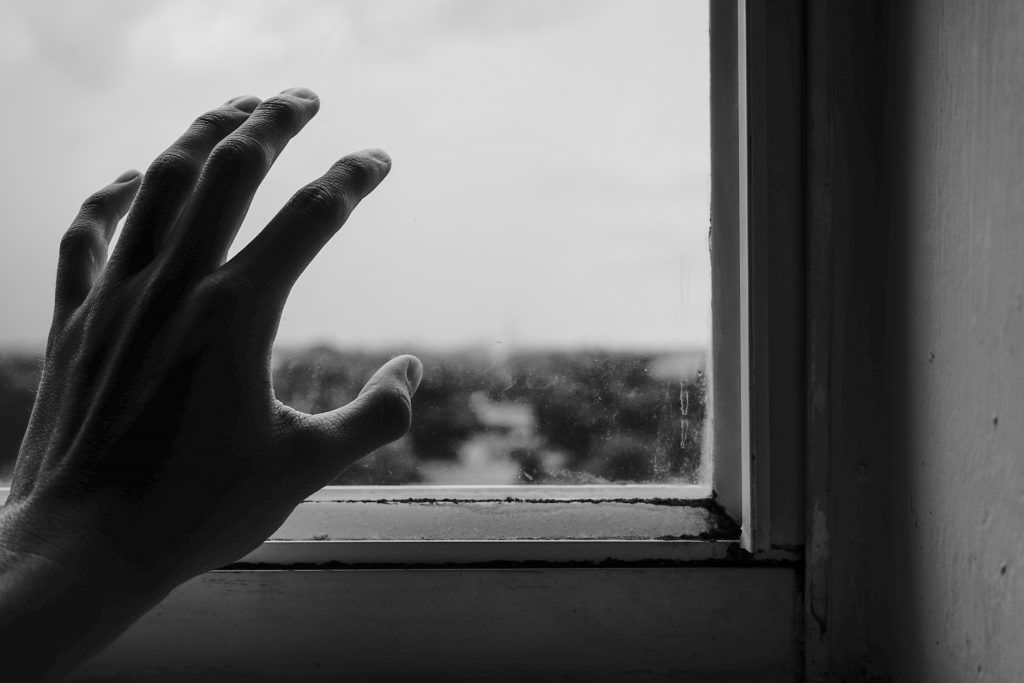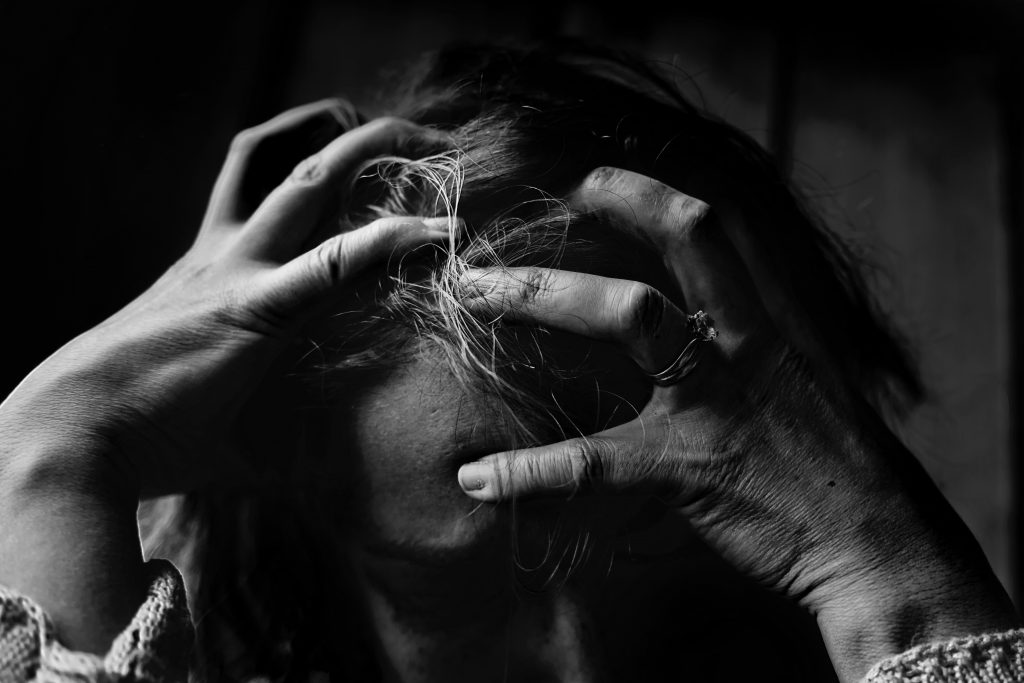
Schizophrenia is a chronic, severe mental disorder that affects the way a person thinks, acts, expresses emotions, perceives reality, and relates to others. People with schizophrenia often have problems functioning in society, work, school, and relationships. They might feel scared and withdrawn or appear to have lost touch with reality. This lifelong disease doesn’t have a cure; however, it can be controlled with proper treatment.
Schizophrenia may result in some combination of hallucinations, delusions, and extremely disordered thinking and behavior that impairs daily functioning and can be disabling.
The complexity of schizophrenia may help explain why there are misconceptions about the disease. Despite the origin of the word, from the Latin meaning “split mind,” schizophrenia does not mean split personality or multiple personality. Most people with schizophrenia are not any more dangerous or violent than people in the general population and may, in fact, be more vulnerable to being the victims of crimes.
Contrary to popular belief, schizophrenia is not a split or multiple personality. Schizophrenia involves psychosis, a type of mental illness in which you can’t tell what’s real from what’s imagined. At times, people with psychotic disorders such as schizophrenia lose touch with reality. Their world may blend confusing thoughts, images, and sounds together. Because of their distorted reality, people with this condition may showstrange and even shocking behavior. A sudden change in their personality or behavior is called a psychotic episode.

SYMPTOMS
Early schizophrenia symptoms
Schizophrenia usually shows its first signs in men during their late teens or early 20s, and in women in their late 20s to early 30s. It affects men and women at an equal rate. The period when symptoms first start and before full psychosis appears is called the prodromal period. It can last days, weeks, or even years. The prodromal period can be hard to identify because there’s often no specific trigger. You might only notice subtle behavioral changes, especially in teens. This includes:
● A change in grades
● Social withdrawal
● Trouble concentrating
● Temper flares
● Difficulty sleeping
Positive schizophrenia symptoms
In this case, the word positive doesn’t mean good. It refers to added thoughts or actions that aren’t based on reality. They’re sometimes called psychotic symptoms. The symptoms can include:
Delusions . These are false, mixed, and sometimes strange beliefs that aren’t based on reality. The person refuses to give up these beliefs, even when shown the facts. For example, a person with delusions may believe that people can hear their thoughts, that they are God or the devil, or that people are putting thoughts into their head or plotting against them.
Hallucinations. These involve sensations that aren’t real. Hearing voices is the most common hallucination in people with schizophrenia. The voices may comment on the person’s behavior, insult them, or give commands. Less common types include seeing things that aren’t there, smelling strange odors, having a funny taste in your mouth, and feeling sensations on your skin even though nothing is touching your body.
Catatonia. In this condition, the person may stop speaking, and their body may be fixed in a single position for an extended period.
Disorganized schizophrenia symptoms
These are positive symptoms showing the person can’t think clearly or respond as expected. Examples include:
● Talking in sentences that don’t make sense or using nonsense words, making it difficult for the person to communicate or hold a conversation. This is referred to as disorganized speech.
● Shifting quickly from one thought to the next without obvious or logical connections between them
● Slow movement
● Being unable to make decisions
● Writing a lot but without meaning
● Forgetting or losing things
● Repeating movements or gestures, such as pacing or walking in circles
● Having problems making sense of everyday sights, sounds, and feelings
Cognitive schizophrenia symptoms
The person will have trouble:
● Understanding information and using it to make decisions (a doctor might call this poor executive functioning)
● Focusing or paying attention
● With limited working memory, meaning they have difficulty using information after receiving it.
● Recognizing the above problems and symptoms that others around them see.
Negative schizophrenia symptoms
The word “negative” here doesn’t mean “bad.” It notes the absence of normal behaviors in people with schizophrenia. Negative symptoms of schizophrenia include:
● Lack of emotion or a limited range of emotions
● Withdrawal from family, friends, and social activities
● Less energy
● Loss of pleasure or interest in life
● Poor hygiene and grooming habits
The exact cause of schizophrenia is unknown. But like cancer and diabetes, schizophrenia is an actual illness with a biological basis. Researchers have uncovered several factors that appear to make someone more likely to get the condition. They are:
Genetics (heredity). Schizophrenia can run in families, which means there is a greater likelihood that schizophrenia may be passed on from parents to their children.
Brain chemistry and circuits. People with schizophrenia may not be able to regulate brain chemicals called neurotransmitters that control specific pathways, or “circuits,” of nerve cells that affect thinking and behavior.
Brain abnormality. Research has found abnormal brain structure in people with schizophrenia. But this doesn’t apply to all people with schizophrenia. It can affect people without the disease.
Environment. Viral infections, marijuana, smoking, childhood trauma, social defeat, malnutrition, vitamin D deficiency, social cognition, and lower intelligence quotient may play a part in triggering schizophrenia in people whose genetic makeup puts them at risk. Schizophrenia more often surfaces when the body is having hormonal and physical changes, such as during the teen and young adult years.
Anyone can get schizophrenia. It affects people all over the world, from all races and cultures. While it can happen at any age, schizophrenia typically first appears in the teenage years or early 20s. The disorder affects men and women equally although symptoms generally appear earlier in men. The earlier the symptoms start, the more severe the illness tends to be. Children over the age of 5 can have schizophrenia, but it’s rare before adolescence.
Though there is no cure for schizophrenia, many patients under treatment do well with minimal symptoms. There are different type of treatments used to manage the syptoms, such as;
Medications
The primary medications used to treat schizophrenia are called antipsychotics. Some are pills that are swallowed, some are injections, and some are once-monthly injections. These drugs don’t cure schizophrenia but help ease the most troubling symptoms, including delusions, hallucinations, and thinking problems.
Coordinated specialty care (CSC)
This is a team approach to treat schizophrenia when the first symptoms appear. It combines medicine and therapy with social services, employment, and educational interventions, with the family involved as much as possible. Early treatment is key to helping people with the condition lead healthy lives.
Psychosocial therapy
While medication may help ease symptoms of schizophrenia, various psychosocial treatments can help with the behavioral, psychological, social, and occupational problems that come with the illness. Through therapy, people can also learn to manage their symptoms, identify early warning signs of relapse, and come up with a relapse prevention plan. Psychosocial therapies include:
● Rehabilitation, which focuses on social skills and job training to help people with schizophrenia function in the community and live as independently as possible
● Cognitive remediation, which involves learning techniques to overcome problems with information processing. Drills, coaching, and computer-based exercises may strengthen mental skills that involve attention, memory, planning, and organization.
● Individual psychotherapy, which can help the person better understand their illness and learn coping and problem-solving skills
● Family therapy, which can help family members cope with and support a loved one who has schizophrenia
● Group therapy/support groups, which can provide continuing mutual support.

Rehabilitation and living with schizophrenia
Treatment can help many people with schizophrenia lead highly productive and rewarding lives. As with other chronic illnesses, some patients do extremely well while others continue to be symptomatic and need support and assistance.
After the symptoms of schizophrenia are controlled, various types of therapy should continue to help people manage the illness and improve their lives. Therapy and psychosocial supports can help people learn social skills, cope with stress, identify early warning signs of relapse and prolong periods of remission. Because schizophrenia typically strikes in early adulthood, individuals with the disorder often benefit from rehabilitation to help develop life-management skills, complete vocational or educational training, and hold a job. For example, supported employment programs have been found to help people with schizophrenia achieve self-sufficiency. These programs provide people with severe mental illness competitive jobs in the community.
Click links below for references:
https://www.webmd.com/schizophrenia/mental-health-schizophreniahttps://www.psychiatry.org/patients-families/schizophrenia/what-is-schizophrenia
